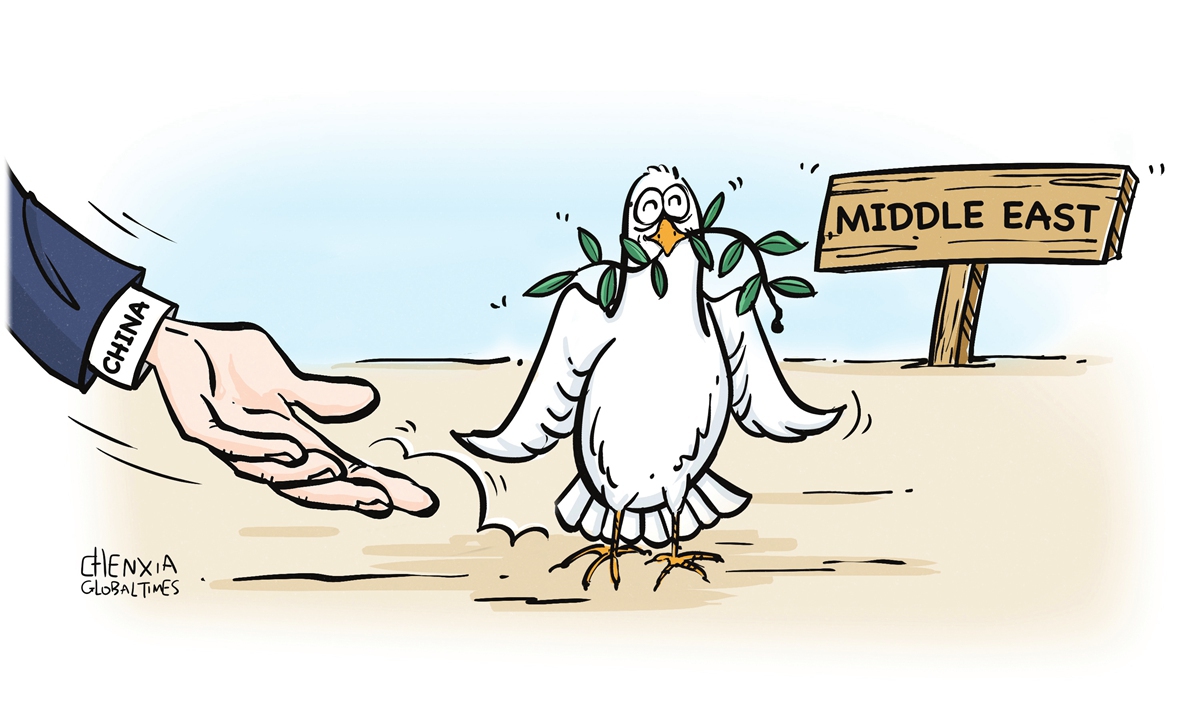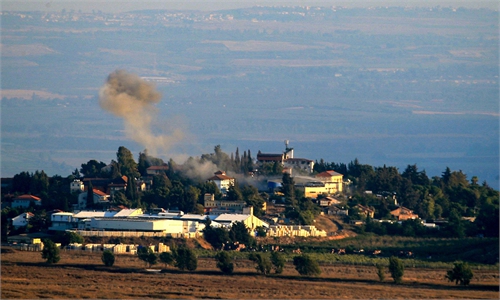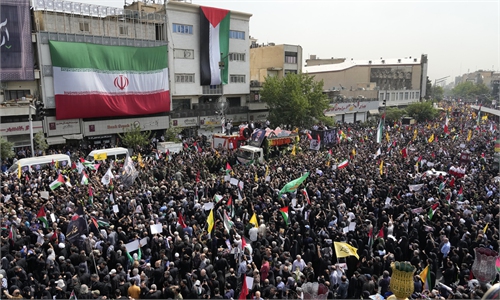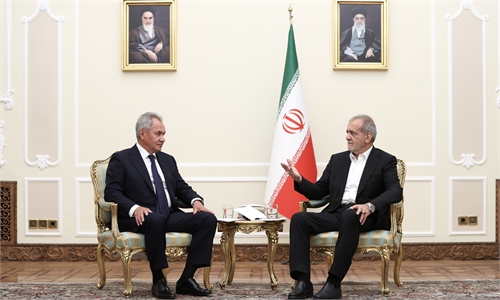
Illustration: Chen Xia/GT
Top Chinese diplomat Wang Yi has held phone conversations with the foreign ministers of Egypt and Jordan, condemning the assassination of Hamas political chief Ismail Haniyeh in Tehran on July 31, calling for efforts by different parties to prevent further escalation of conflicts and urging countries to form a joint force to help achieve a cease-fire in Gaza.
Hamas named Yahya Sinwar, who is seen as representing Hamas' hard-liners, as successor to Haniyeh. Arab countries, in a dilemma and feeling more anxious, hope that China can play a positive role in deescalating the situation as they recognize China's efforts and capacity in regional reconciliation, analysts said.
But the complexity of the situation requires joint efforts from all parties to address the current crisis, especially the US and Israel, to avoid escalation, they said.
The Chinese Foreign Ministry on Wednesday released information on Wang's phone conversations with Badr Abdelatty, Egypt's Minister of Foreign Affairs, Emigration and Egyptian Expatriates and with Jordan's Deputy Prime Minister and Minister of Foreign Affairs and Expatriates Ayman Safadi, which took place on Tuesday. During both conversations, Wang said that China resolutely opposes and strongly condemns the assassination of Haniyeh.
While talking with Abdelatty, Wang said that retaliatory action leads to a vicious cycle, and violence begets more violence, exacerbating conflict. China will strengthen solidarity with Arab countries, and work with all parties to avoid further escalation and deterioration of the situation.
In talking with Safadi, Wang said that the key to avoiding the deterioration and escalation of the situation is to achieve a full and permanent cease-fire in Gaza as soon as possible and the international community should make a more consistent voice on this issue and form a joint force.
Liu Zhongmin, a professor from the Middle East Studies Institute of Shanghai International Studies University, told the Global Times on Wednesday that Egypt and Jordan are neighbors of the parties in conflict. Both countries established diplomatic relations with Israel early and have upheld a cautious approach to the situation involving Iran.
At this complex and critical juncture, they seek to engage with China given China's previous role in brokering reconciliation between Iran and Saudi Arabia and among various Palestinian factions, Liu said.
Fourteen Palestinian factions signed the Beijing Declaration on July 23, seen as a positive move toward ending division and strengthening Palestinian national unity.
The conflicts in the Middle East not only relate to the Palestinian-Israeli issue, but also result from the US' long-term partial policies toward Israel and Iran's diplomatic inclinations, Liu said, therefore joint efforts from all involved parties are needed to address the crisis.
Simmering escalation of tension
With Iran's retaliation against Israel looming after Haniyeh's assassination, regional countries and major players have been actively engaged in diplomacy to avoid an all-out regional war. Jordan's Foreign Minister Safadi made a rare visit to Iran on Sunday and Russian media reported that Russian Security Council Secretary Sergei Shoigu also visited Iran on Monday.
US President Joe Biden called Jordan's King Abdullah II on Monday and spoke with the leaders of Qatar and Egypt on Tuesday to discuss efforts to deescalate regional tensions, the White House said.
The US is indeed the instigator of the situation which has been spiraling out of control in the Middle East, Sun Degang, director of the Center for Middle Eastern Studies at Fudan University, told the Global Times.
"If the US had managed to restrain Israel and allow a cease-fire in Gaza earlier, the situation would not have escalated to this extent. Also it is the US' repeated obstruction at the UN Security Council on cease-fire proposals that has led to the current situation," said Sun.
Unlike Haniyeh, Sinwar represents hard-liners in Hamas, Sun said, adding that Hamas' past approach of "fighting while seeking negotiations at the same time" may likely shift to "survival through combat."
Sun said that Hamas would also seek to form an alliance with Iran, the Houthis and Hezbollah, while trying to gain international support.
Iran did not immediately retaliate after the assassination but tried to tell the world that it is Israel that has infringed international norms and violated Iran's sovereignty, which has forced Iran to respond. The appointment of Sinwar could be a critical moment when Iran might take action, Sun said.
Liu said Iran is likely to continue missile attacks on Israel and mobilize other militia groups in skirmishes with Israel. However, given Iran's current domestic and international situation, it is unlikely to engage in a large-scale conflict with Israel at the expense of the nation's interests.
No matter how the crisis unfolds, the hatred between Iran and Israel will accumulate, and the escalating cycle of retaliation and counter-retaliation between them will worsen regional diplomatic relations, said Liu.
In past decades, the vicious cycle in the Middle East has repeated with no country emerging as a true winner, and if the cycle continues, none of regional countries can have substantial security, analysts said, adding that as China and many other countries have advocated, negotiation and political settlement is the only way out.




